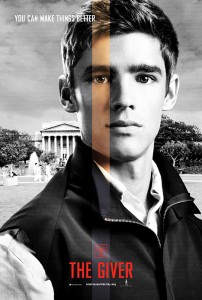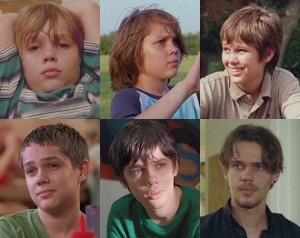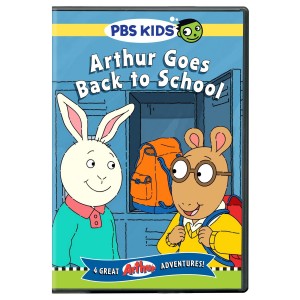The Giver
Posted on August 12, 2014 at 7:00 am
B| Lowest Recommended Age: | Middle School |
| MPAA Rating: | Rated PG-13 for a mature thematic image and some sci-fi action/violence |
| Profanity: | Some strong languge |
| Alcohol/ Drugs: | Citizens are required to take drugs to make them submissive |
| Violence/ Scariness: | Sci-fi-style apocalyptic violence, murder, peril, characters injured and killed |
| Diversity Issues: | A theme of the movie |
| Date Released to Theaters: | August 15, 2014 |
| Date Released to DVD: | November 24, 2014 |
| Amazon.com ASIN: | B00MU2P0HO |

“Thank you for your childhood.” Are there any more fearsome words in literature than these?
Lois Lowry’s The Giver is a Newbery Award-winning novel, a staple of middle school reading lists and book reports. It tells a dystopian story of a post-apocalypse society that is pleasantly courteous on its surface, but rigidly regimented and ruthlessly enforced. As children come of age and are assigned to their future careers by the all-powerful elders (who will later assign their mates and children as well), they are thanked for their childhood, words that sound grateful and polite, but which imply that all lives belong to the community, which demands that childhood be somehow contributed. And, it clearly communicates that whatever freedoms or pleasures of childhood exist in this society, they are now in the past.
“From the ashes of the ruin,” we are told, “the communities were built” and “true equality” was achieved. Whoever designed these new communities made the decision that human life could only continue if all memories of the past were erased, so that the sources of catastrophic conflicts — individual and cultural differences, were wiped out, along with the freedom to chose that inevitably leads to jealousy, anger, and struggles for power. Fear, pain, envy, hatred, are all gone. So are colors. We see their world through their eyes, muted greys, no color, no music, no art. There is constant discussion of “precision of language,” but it is just a way to eliminate words that describe strong emotions or complicated concepts, while genuinely imprecise words like “elsewhere” and “release” are euphemisms for dire and tragic consequences. People “apologize” all the time but there are no real regrets and the “I accept your apology” responses are just as perfunctory.
Three friends, the serious Jonas (Brenton Thwaites), fun-loving Asher (Cameron Monaghan), and kind-hearted Fiona (Odeya Rush) are about to receive the thanks for their childhoods and be assigned their jobs. Jonas is worried but his “parents” (a couple assigned to each other and handed babies from a collective nursery) reassure him that the Elders will make a good assignment, whether it is as a laborer, a nurturer (caretaker of infants and elderly), a lawyer (like his mother), or one of the other jobs that keep the community going.
But at the assignment ceremony announcements, Jonas is skipped over. Only when everyone else has been assigned does the Elder (Meryl Streep in Very Serious Hair) tells the group that Jonas has been selected for a very important job. The founders of this post-Ruin society erased all memories of the past but recognized that there might be some circumstances when mistakes could be prevented by reminders of past failures. And so, it turns out, one isolated member of society is designated to be the repository of memories. Jonas has been selected to be his successor. He tells Jonas that because he is transferring the memories, he is The Giver (Jeff Bridges). There is a lot of pressure on The Giver and Jonas because a previous effort to find a new keeper of memories (a small role for Taylor Swift, unglammed and made under) failed.
The story retains its power, despite an uneven translation to screen, in part because the book has been so influential that its ideas are no longer as innovative. There is now an entire literary genre about repressive dystopian societies where it is up to an exceptionally attractive and very brave and talented teenager to save the day: Divergent, The Hunger Games, and the upcoming “The Maze Runner.” Those stories have some similarities — the imposition of sometimes-fatal assignments by all-powerful adults, the rigidity and corruption of the society. But the other stories are more inherently cinematic than The Giver, with a lot of the interaction here limited to conversations. The muted emotions and colors are better imagined by a reader than watched as a viewer. Streep and Bridges give uncharacteristically one-note performances in one-note roles. Only Alexander Skarsgård as Jonas’ “father,” a nurturer in the facility where all the newborns are kept for the first year, gives his character some nuance and complexity, particularly in one very difficult scene that shows Jonas just how ruthless the seemingly placid and egalitarian community really is.
Indeed, that is one of the few scenes that seems to come alive. On film, the book falters, more weighted by ideas than by story or character. Despite the gifted work of production designer Ed Verreaux, whose setting convey placid exterior and deeper menace and director Philip Noyce, who uses music and color to deepen the emotional resonance, the film still feels thinly conceived. The Giver can transmit tumultuous events and powerful emotions with a touch. But the audience never achieves that visceral connection.
Parents should know that there is disturbing dystopic material in this story including peril and attacks, murder of people deemed unwanted or superfluous and mandatory drugging of the entire population, some graphic images, reference to adolescent “stirrings,” and a kiss.
Family discussion: If you were The Giver, what memories would you share and why? What are the reasons someone might think this was a better way for societies to function?
If you like this, try: “Pleasantville,” “The Hunger Games” and “Divergent” and the three sequels to this book by Lois Lowry.


